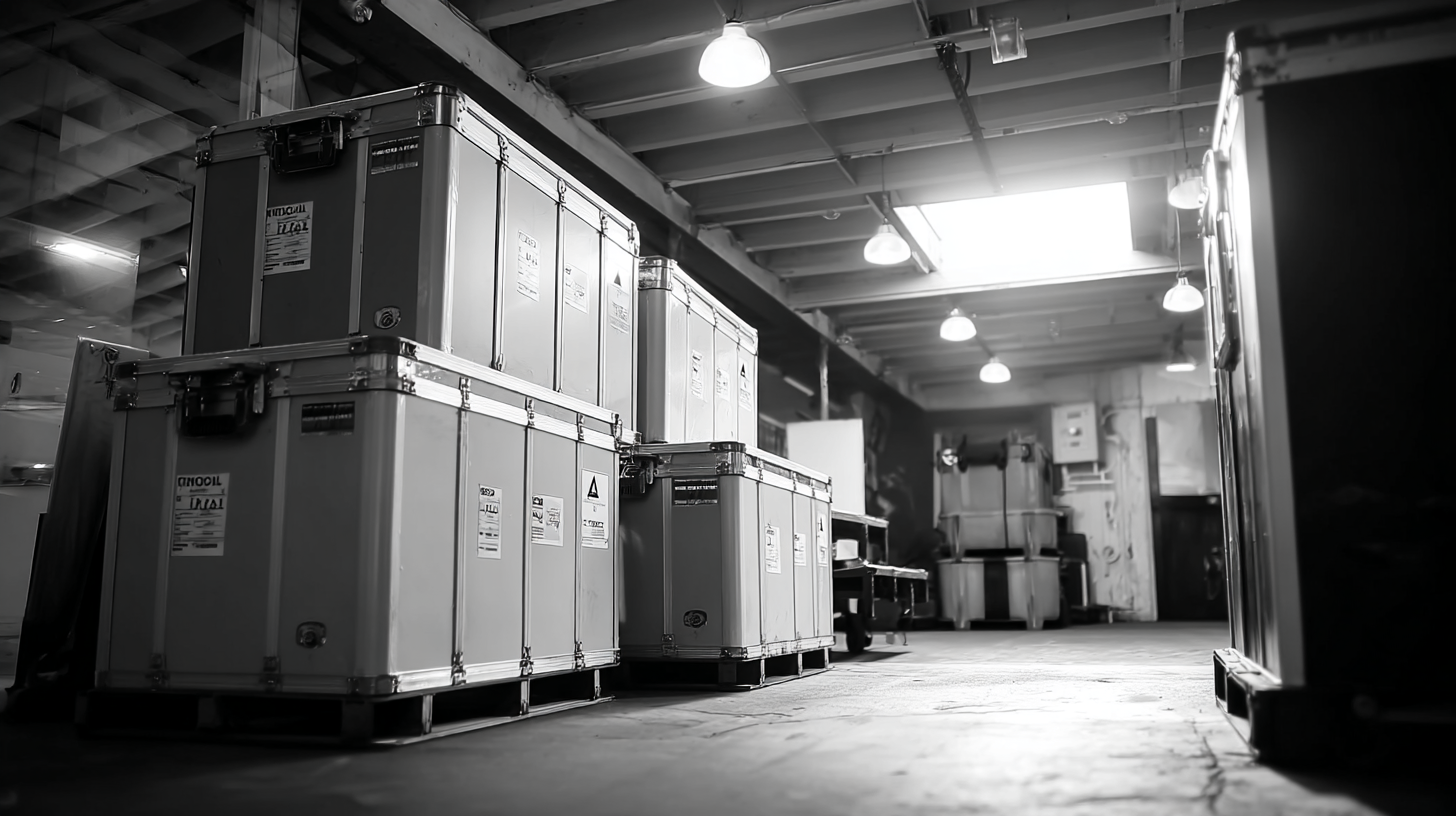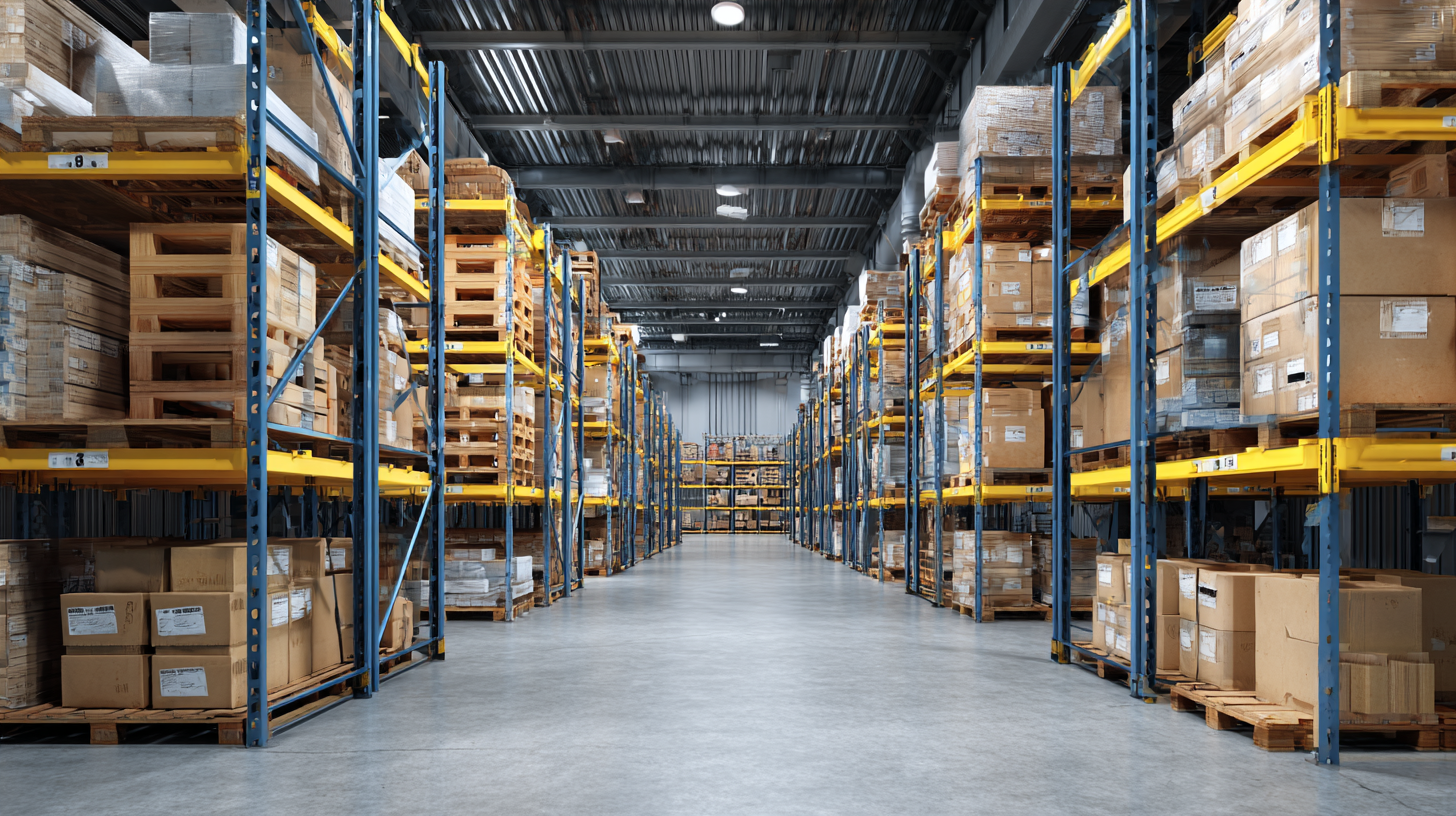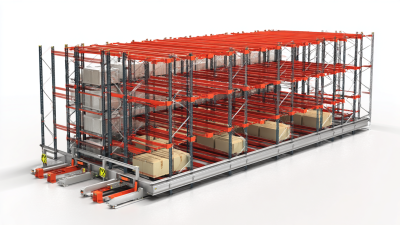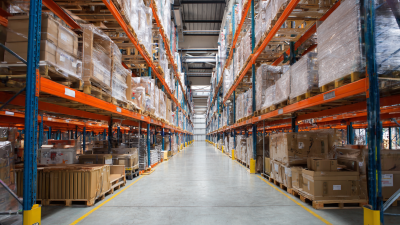
Blog
How to Choose the Best Industrial Storage Solutions for Your Business Needs
In the ever-evolving landscape of modern industry, finding the right solutions for industrial storage is crucial for optimizing operations and enhancing productivity. According to John Smith, a leading expert in industrial storage solutions, “The right storage system not only maximizes space but also improves workflow and efficiency.” With businesses facing increasing demands for streamlined processes, choosing the best industrial storage options has become a top priority for many.

Industries today are inundated with various storage solutions, ranging from traditional shelving to advanced automated systems. The challenge lies in selecting a solution that fits the unique requirements of a business while also accommodating future growth. As John Smith notes, “Assessing your specific storage needs is the first step towards making an informed decision.” Understanding the intricacies of industrial storage not only helps in inventory management but also plays a significant role in safety and accessibility.
In this guide, we will explore the key factors to consider when choosing the best industrial storage solutions for your business needs, ensuring that you make informed choices that will benefit your operations both now and in the future.
Identifying Your Unique Storage Requirements Based on Industry Regulations and Standards
When selecting industrial storage solutions, understanding your unique storage requirements is paramount, especially considering industry regulations and standards. Each industry, whether it be pharmaceuticals, food and beverage, or manufacturing, has specific guidelines that determine how materials should be stored. For instance, the pharmaceutical sector mandates controlled environments to uphold product integrity and compliance with safety regulations, necessitating specialized storage systems that can maintain certain temperatures and humidity levels.
Moreover, compliance with local and international standards, such as OSHA regulations for workplace safety or ISO certifications for quality management, will dictate the type of storage solutions that can be implemented. This is particularly crucial when dealing with hazardous materials, where storage solutions must not only ensure safety but also adhere to stringent regulatory requirements. By thoroughly assessing these regulations and conducting a needs analysis, businesses can identify the most appropriate storage solutions that not only optimize space and efficiency but also uphold compliance, ensuring that operations run smoothly without regulatory setbacks.

Evaluating the Cost-Effectiveness of Different Industrial Storage Systems
When evaluating the cost-effectiveness of different industrial storage systems, businesses must consider not only the initial investment but also long-term operational expenses and efficiency. A recent analysis highlights that energy storage technologies often exhibit undervalued revenue potential, suggesting that companies could significantly benefit from a revised evaluation approach. For instance, the growing infrastructure of battery storage solutions allows organizations to mitigate peak electricity costs, thereby enhancing overall cost efficiency. Research indicates that effective energy storage can lead to savings of up to 30% on energy expenses, particularly in high-demand industries.
Moreover, the assessment of commercial solar-plus-storage alternatives has gained traction, showcasing the economic benefit of pairing solar energy systems with battery storage. According to findings from recent models, integrating these technologies can yield a return on investment, making them a sustainable option for businesses aiming to lower their carbon footprint and operational costs. As the demand for energy continues to rise, especially in sectors like data centers which are projected to triple their domestic energy usage by 2028, investing in innovative and robust industrial storage solutions becomes a strategic imperative for maintaining competitiveness and sustainability in the market.
How to Choose the Best Industrial Storage Solutions for Your Business Needs - Evaluating the Cost-Effectiveness of Different Industrial Storage Systems
| Storage System Type | Initial Cost ($) | Maintenance Cost ($/year) | Storage Capacity (cu ft) | ROI (Return on Investment) |
|---|---|---|---|---|
| Pallet Racking | 1500 | 200 | 2000 | 25% |
| Shelving Units | 800 | 100 | 1500 | 20% |
| Mobile Storage Systems | 3000 | 300 | 2500 | 30% |
| Modular Storage | 2500 | 250 | 1800 | 22% |
| Containers | 3500 | 150 | 3000 | 35% |
Analyzing Space Optimization Techniques to Maximize Storage Efficiency
In recent years, the global industrial storage solutions market has witnessed significant growth. A key factor driving this expansion is the need for effective space optimization techniques, which can maximize storage efficiency. By 2025, the global home storage services market is projected to reach approximately $7.658 billion and is forecasted to escalate dramatically to $71.878 billion by 2033, marking a staggering compound annual growth rate (CAGR) of 32.3%. This surge indicates that businesses are increasingly recognizing the importance of optimizing their storage capabilities to improve operational efficiency.
Furthermore, industries heavily reliant on automated processes, such as batch manufacturing, are investing significantly in advanced industrial storage solutions. Automation facilitates the intricate workflows of mixing, boiling, and stirring components according to specific formulas one batch at a time. As these processes integrate with smart storage technologies that offer real-time monitoring and analytics capabilities, businesses can enhance not only their storage efficiency but also their overall production strategies. The growth of smart storage cabinets, predicted to rise from approximately $48.3 million in 2024 to $806.1 million by 2033, underlines the crucial role of integrating intelligent systems with conventional storage practices to meet evolving industrial demands.
Assessing the Importance of Scalability in Industrial Storage Solutions
When selecting industrial storage solutions, scalability is crucial for adapting to fluctuating business needs. As industries increasingly embrace sustainable practices, the adoption of technologies like stationary hydrogen storage is gaining traction. Research indicates that integrating scalable storage options can facilitate the growth of hydrogen and fuel cell applications, especially for backup power. The ability to expand storage capacity in response to demand ensures that businesses remain agile in a competitive environment.
**Tips:** Consider modular storage systems that allow you to easily upscale or downscale based on your current requirements. Investing in solutions that accommodate future growth can save costs and prevent disruption during expansions.
Moreover, the importance of scalability extends beyond just storage. Industries focused on carbon dioxide removal (CDR) are also witnessing a shift toward scalable technologies. A recent report highlighted the role of scalable industrial CDR strategies in climate change mitigation, emphasizing that businesses featuring adaptable solutions can enhance their sustainability efforts while benefiting economically. As businesses explore these innovative methods, they should remain mindful of integration capabilities to ensure seamless operation.
**Tips:** Evaluate solutions that provide flexibility in configuration and management, enabling you to respond quickly to regulatory changes and market demands.
Exploring Automation and Technology Integration for Modern Storage Needs
In today's fast-paced industrial landscape, integrating automation and technology into storage solutions has become essential for businesses aiming to enhance efficiency and reduce operational costs. According to a recent report by Logistics Management, companies that have adopted automated storage systems have seen a productivity increase of up to 30%. This shift not only streamlines inventory management but also minimizes the human error typical of manual processes. As industries increasingly embrace these technologies, the demand for smart storage solutions that utilize IoT and AI capabilities has surged, with the global market expected to reach $1.5 billion by 2025.

Automation in storage systems allows for real-time inventory tracking and management, enabling businesses to respond swiftly to market demands. Data from the Warehousing Education and Research Council indicates that warehouses using automated systems can achieve up to 99.9% inventory accuracy. By leveraging robotics and automated guided vehicles (AGVs), businesses can optimize space utilization and reduce retrieval times, leading to improved customer satisfaction. As technology integration becomes a priority, businesses must evaluate their specific needs and choose solutions that not only facilitate current operations but are also scalable for future growth.

